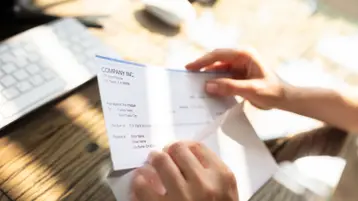Recently Posted

Definition of Business Name Control Code
The IRS uses business name control codes to verify the identifying information companies provide on tax returns and forms corresponds to them.
December 14, 2023

Reverse Wire
A reverse wire transfer occurs when a company, typically a vendor, can initiate a wire transfer from an authorizing company for payment of services.
December 14, 2023

Statement of Information (California)
In California, you must file your corporation's or LLC's initial Statement of Information within 90 days of your Articles of Incorporation.
December 14, 2023

Payroll Reversal
A payroll reversal is a transaction intended to recoup funds that were inaccurately deposited in an employee’s bank account.
December 14, 2023
EGUIDE
A Startup’s HR Survival Guide
EGUIDE
Six Ways to Attract Top Talent









